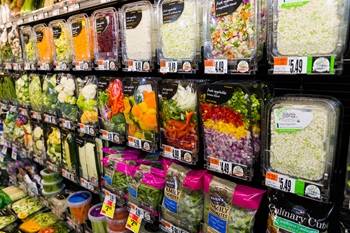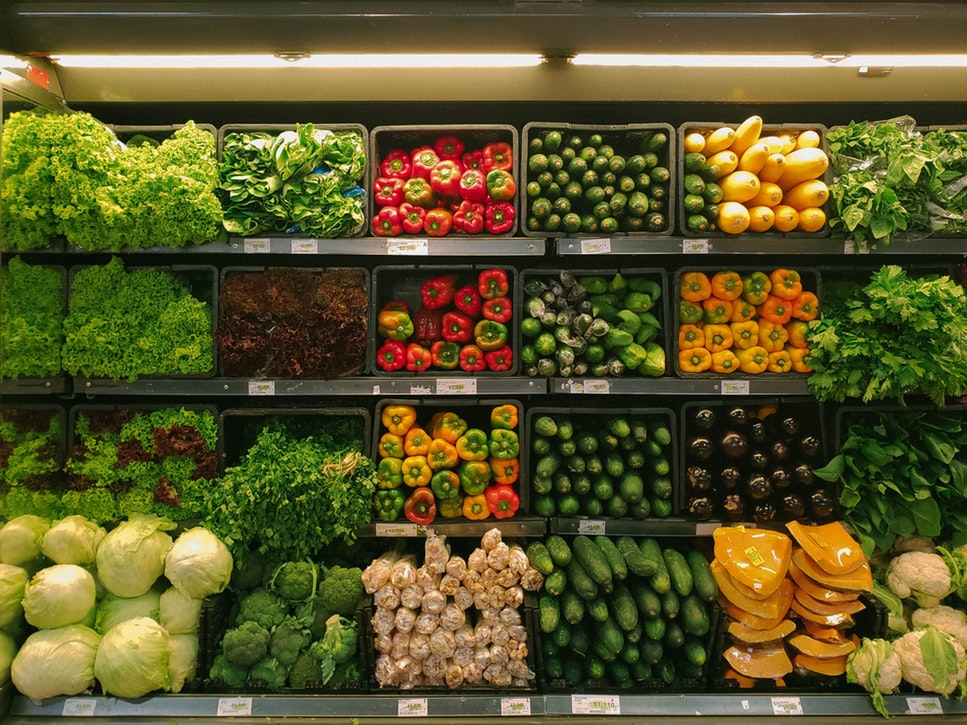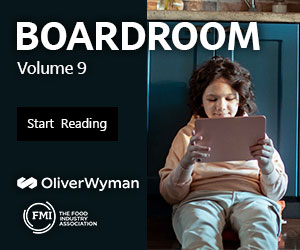By Rick Stein, Vice President of Fresh, FMI

It might be logical to think the fresh industry would have put sustainability on the back burner during the COVID-19 pandemic.
However, in reality, many industry leaders never departed from their sustainability goals in the face of extreme hurdles. Executives pressed forward, even if they encountered some delays or needed to work in the background for a while. It’s great to see the momentum has continued on topics such as single-use plastics, recycling, and packaging and food waste reduction.
The importance of staying the course was relayed loud and clear by speakers at FreshForward (Aug 2020), which devoted a full day to this topic. It was further discussed in the conference’s signature breakout groups to identify key takeaways.
Clear Goals Drive Sustainability Success
Kevin Holt, CEO of Ahold Delhaize USA, opened the discussion by relaying his company’s extensive sustainability commitments, including on the fresh foods side. He was introduced by Tom Windish, president of the Retail Channel for Cargill Protein, a FreshForward sponsor.
“Single use plastic is a very big issue,” Kevin said. “We’re committed to reducing plastic by 25% while increasing the recycled content by 25% in that same amount of time.”
Internal Teamwork Advances Efforts
Internal collaboration by leaders across company business units is key to making sustainability progress. Albertsons is doing this very creatively, as outlined at FreshForward by two of its executives, John Beretta, group vice president of meat and seafood and Starbucks, and Darcie Renn, director of sustainability.
“We collaborate on our company’s sustainability goals,” said John. “In my role in merchandising, we have a huge focus on sales and driving profits, and we also have sustainability goals in mind in our go-to-market strategy. Darcie and our sustainability team support and guide us to achieve the goals.”
Darcie noted Albertsons’ plastics pledge that 100% of own brands packaging will be recyclable, reusable or compostable by 2025 — a goal developed by a cross-functional team at the company.
Industry Collaboration Builds Momentum
Industry-wide collaboration is one of the most important ways to make enduring progress. I was especially impressed by how Chris Foote, sustainability coordinator, Wegmans Food Markets, framed this point in his FreshForward presentation.
He said the industry has been working individually on many sustainability topics like single-use plastics, and there’s an opportunity for more collective action.
“Our door is open at Wegmans,” he said. “We welcome and encourage any conversations on any sustainability topic. There are many fronts we compete on as an industry. But sustainability is one area in which we can cooperate and work together.”
Also underscoring the key role of sustainability partnerships was speaker Viviana Alvarez, head of sustainability, Unilever North America, who relayed how this CPG company is addressing issues including food waste and plastics waste.
“Retailers on this journey will be very important,” she said about food waste. “When retailers set the bar higher, it really pushes suppliers to do the same.”
A Time to Take Action
It’s hard to come away from all these FreshForward presentations without a renewed sense of energy about the importance of sustainability in fresh.
The topics discussed are complex. However, I feel there is opportunity to move forward in a non-competitive way if we adopt the “our door is open” perspective that Chris relayed. We really don’t have a choice because consumers are going to insist on this. Let’s embrace this challenge in fresh foods while the momentum is advancing.


 Industry Topics address your specific area of expertise with resources, reports, events and more.
Industry Topics address your specific area of expertise with resources, reports, events and more.
 Our Research covers consumer behavior and retail operation benchmarks so you can make informed business decisions.
Our Research covers consumer behavior and retail operation benchmarks so you can make informed business decisions.
 Events and Education including online and in-person help you advance your food retail career.
Events and Education including online and in-person help you advance your food retail career.
 Food Safety training, resources and guidance that help you create a company food safety culture.
Food Safety training, resources and guidance that help you create a company food safety culture.
 Government Affairs work — federal and state — on the latest food industry policy, regulatory and legislative issues.
Government Affairs work — federal and state — on the latest food industry policy, regulatory and legislative issues.
 Get Involved. From industry awards to newsletters and committees, these resources help you take advantage of your membership.
Get Involved. From industry awards to newsletters and committees, these resources help you take advantage of your membership.
 Best practices, guidance documents, infographics, signage and more for the food industry on the COVID-19 pandemic.
Best practices, guidance documents, infographics, signage and more for the food industry on the COVID-19 pandemic.
